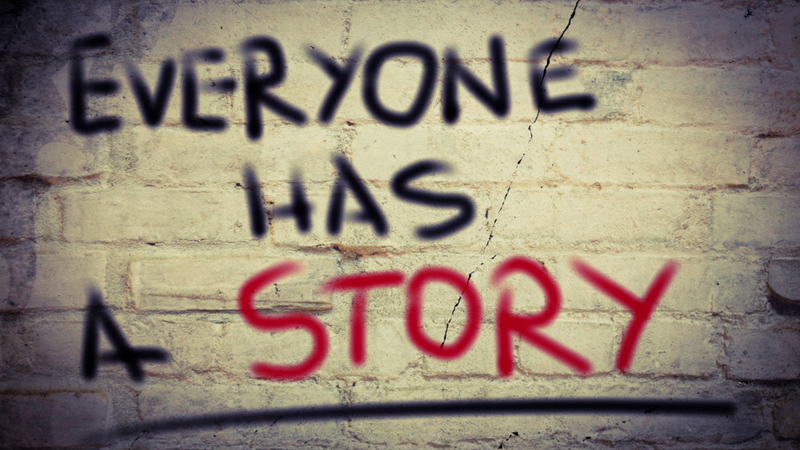Have an Effective Talk Therapy Experience
We talk a lot about mental illness and what it is (and isn’t), but we don’t talk enough about the long and difficult road back to mental health and resilience. For most — especially those with a limited understanding of mental illness — medication feels like the panacea: Take your pill today and you should be fine.
Those of us with personal experience, though, know that pills are not only not a cure, they can become a crutch that keeps us from taking the other steps necessary to achieve long-term stability and remission.
While medication, good diet, and consistent exercise are important in the self-care process, there is another component that is equally important: Talk therapy.
Reasons We Abandon Talk Therapy
Talk to psychologists, however, and they’ll tell you that talk therapy is often neglected by those going through a mental health difficulty. Common reasons for halting or neglecting this important part of the recovery process include:
1) Distrust of the therapist
2) Lack of faith in the talk therapy process
3) Time commitments
4) Financial considerations
5) Feeling “abnormal” or “crazy” for going to therapy. A belief that it’s only for the people with “real problems or issues”
I think it is easy to understand and appreciate each of these reasons, and I’ll address each of these (although I’ll do it out of order).
Despite these reasons, I encourage everyone I support to see and consistently work with a therapist.
When we commit to the talk therapy experience, it not only helps us deal with the larger issues we live with, such as depression, anxiety, etc., but it also helps us resolve the “little” issues that hide in our psyches and feed into our illnesses.
Addressing these little issues are critical to longer-term mental health success, especially as we often find that what seems “little” actually has an outsized impact on us.
Talk Therapy Stigma Is Undeserved
One of the biggest obstacles people face in visiting the therapist is the perception of what it means for their identity. “How bad/weird/in trouble must I be to have to see a therapist?”
This idea gets reinforced by the stigma we sometimes encounter from others: “Did you hear so-and-so is in therapy? I always knew he was weird in the head.”
These are terrible stigmas to live with, and terribly inaccurate. I am convinced the world would be a better place if everyone saw a therapist consistently.
Throughout our lives, we receive messages from loved ones, our culture, our friends, and our environment that reinforce negative stereotypes and that are too easily integrated into our sense of identity.
When we teach that women are always nurturing, caring, and good with children, a woman who struggles with empathy issues redefines herself as an incompetent or “bad” woman.
Someone who is told that they are stupid usually won’t fight for a quality education and to achieve a better life for themselves.
When men receive the message that the safety and security lie solely on their shoulders, the pressure they feel can be overwhelming to the point of crippling.
I’ve known men with this “provider” identity who neglect their wives and children in an effort to live up to the perceived expectations.
As a result of this stigma, we may rush through the process to get to a “good enough” point and put it behind us. This does a terrible disservice to us. In fact, talk therapy — when done right — not only provides immediate relief to the issue directly in front of us but also helps us resolve issues that seem unrelated but have a deep impact on other areas of our lives.
Finding a Good Therapist Is Critical
To achieve these benefits, we do need a therapist we can trust. Remember, however, that a relationship with a therapist is first and foremost a relationship, which means that comfort and trust can take time to build. Often, this process is accelerated with a therapist, since we often start by addressing big and immediate issues, such as what led up to a suicide attempt.
However, if you are truly uncomfortable sharing with your therapist, you should continue to look. As a rule, I’ve preferred female therapists, because I’ve felt safer sharing some of my sexual assault issues with them.
However, I’ve had the most success with my current, male therapist primarily because I have a better trust level with him than I’ve had with others (there are other reasons as well that I won’t touch on here).
If you have gone through four or five therapists and have been unable to find one you can work with, it may be time to re-evaluate. Do you really want to try therapy and get better, or are you going through the motions to make family/friends/others feel better and worry less about you?
This is not a question to brush by and say, “Of course I want to get better!”
Getting better requires change, and that means discomfort. In therapy, we address stories and issues that hurt and it is often easier to simply avoid the pain.
We can absolutely choose to avoid the pain, and that’s our choice. However, the path to recovery and remission requires a different choice, no matter how scary it may seem and how difficult the actual experience is.
Frequent readers of my writing know that I am going through a breast cancer scare at the time of this writing, and my therapist, Mike, pinpointed that a lot of my emotion has to do with sexual assault and trust issues. We’ve worked together long enough that he is able to have these specific insights, and for me to take them seriously when he raises them.
I’ve spent the last few weeks getting myself into a mindset to really look at these issues head-on. I’ll admit it: I’m scared. I know that delving into these stories is painful, and I passionately dislike pain. I’ve really questioned if I actually want to do this work; the choice is mine.
I also know that if I don’t do this work now, the topic will continue to come up in various areas of my life, and my life will be more challenging as a result. As hard as it is, it’s easier to just do the work.
Honesty Is the Foundation
There is another key to a successful therapy experience, and I think it’s the most difficult part of all: the commitment to honesty. We often learn to live our lives with little white-lies, glossing over truths that scare us or make us uncomfortable.
The lies we tell ourselves are the most potent and often the hardest to see or admit. Admitting that our “little bundle of joy” doesn’t actually bring us any joy is painful, in part because it’s counter to what is expected of us.
Every parent is expected to be excited and “so in love” with the little creature they’ve created; in reality, not everyone has that experience.
There are other lies we may tell ourselves, like that we don’t have time to go to church (when we prefer to sleep in), or that we give to charity because we believe in the cause (rather than a desire to be perceived as a “good person”). These may not be the lies you tell yourself, but I promise you have lies you rely on.
In fact, I think one of the hardest parts of therapy can be admitting these lies and understanding why we hold on to them so tightly. It’s not easy work, but it is tremendously helpful in achieving a healthier life both mentally and physically.
Making the commitment to healing with therapy as a key component often resolves the issues of time and finances, as well. Our time and money are reflections of our priorities. That being said, real constraints do exist.
Handling Legitimate Challenges to Talk Therapy
While frequent talk therapy has the strongest benefits, it is also effective if you only meet every couple of weeks. I typically meet with Mike every two or three weeks for an hour (which boils down to 50 minutes of time face-to-face and the balance dedicated for him to write down his notes on our session after I leave).
To make less-frequent visits more effective, keeping a journal and writing on the issues you are working your way through is tremendously helpful as well.
I have a stack of completed journals that reflect a variety of topics I’ve considered and stories I’ve lived and done emotional work on. I don’t write every day, but every time I sit down and make the effort, I feel better when I stand back up. Journaling has been an excellent bridge to my success between visits.
Lastly, a lot of people think that a commitment to talk therapy means years and years of therapy. That’s not necessarily true. By making a commitment to the process, finding a therapist you trust, and holding yourself accountable to honesty with yourself, it can be possible to commit a much shorter time period to therapy.
I’ve only worked with Mike for 18 months now, and it’s been an incredibly productive experience. We are getting to some of the deepest, most core issues around identity that I need to work on now, and I think it’s reasonable to expect that I may wrap up with him sometime in the next 12 months, with only occasional visits after that (when I deal with a particularly challenging storm).
While two years may seem like a long time, the time invested will bear fruit many times over for the next forty years. I’ve taken the time to make myself better, which has positive impacts on my marriage, my career, my family, and all my other relationships.
Two years out of 42 feels like a reasonable time period to me, and I am confident that it would benefit anyone else in the same way. While medication is one component to the recovery process, it is critical not to undervalue the importance of talk therapy as well.
Have you chosen to walk through God’s door to put on your new self? What’s holding you back? What encourages you?
Looking for daily inspiration and community? Join our warm and supportive Facebook group!









